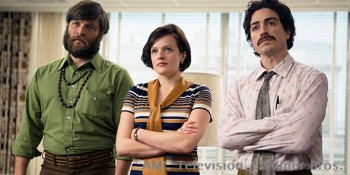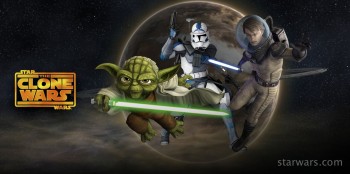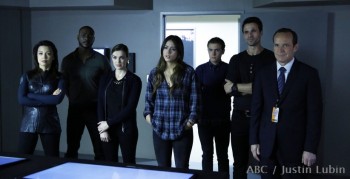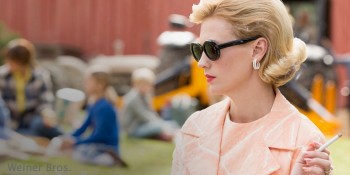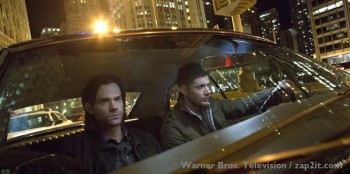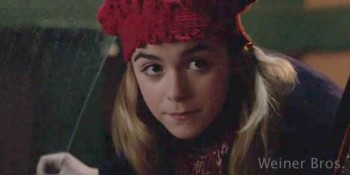When a film does well at the box office, Hollywood has a habit of feeling the need to create sequels, regardless of whether the story calls for one or not. If the producers can’t think up a sequel, they turn to backstories and make prequels, which are often worse. Television attempts the same thing; when a series is doing well, a network will try to take advantage of its popularity through the TV equivalent of a sequel: the spinoff.
Television executives started pondering early on that when a series is doing well or has been on the air for a significant period of time, surely another edition with a similar premise will be just as well-received, right? Way back in 1960, a fictional sheriff from Mayberry, N.C., arrested Danny Williams on The Danny Thomas Show, and that fall, The Andy Griffith Show began its eight-year run as one of television’s most iconic series. That series gave rise to its own spinoffs: Gomer Pyle: USMC
began its eight-year run as one of television’s most iconic series. That series gave rise to its own spinoffs: Gomer Pyle: USMC and Mayberry R.F.D.
and Mayberry R.F.D.
Some of the highest rated and acclaimed series of all-time have been spinoffs, including The Jeffersons , Laverne & Shirley
, Laverne & Shirley , The Facts of Life
, The Facts of Life , A Different World
, A Different World , Star Trek: The Next Generation
, Star Trek: The Next Generation , Family Matters
, Family Matters , The Simpsons, and Frasier
, The Simpsons, and Frasier . In fact, the most watched series on television right now is a spinoff, though many have long-since forgotten this fact. CBS powerhouse NCIS got its start within the late seasons of the series JAG
. In fact, the most watched series on television right now is a spinoff, though many have long-since forgotten this fact. CBS powerhouse NCIS got its start within the late seasons of the series JAG , which, ironically, premiered on NBC. Then, in the tradition of Andy Griffith and All In The Family
, which, ironically, premiered on NBC. Then, in the tradition of Andy Griffith and All In The Family before it, viewers’ embracing of NCIS led to the spinoff spawning a spinoff, NCIS: Los Angeles, which I personally find more interesting than the original. Another well-known crime procedural, CSI: Crime Scene Investigation, has had similar good fortune.
before it, viewers’ embracing of NCIS led to the spinoff spawning a spinoff, NCIS: Los Angeles, which I personally find more interesting than the original. Another well-known crime procedural, CSI: Crime Scene Investigation, has had similar good fortune.
Of course, while our TV sets have been full of successful spinoffs lately, there have been others that make you wonder why the producers made the effort. Even NCIS has had its spinoff missteps. CBS attempted a spinoff-of-a-spinoff when it aired a planted pilot of what would have become NCIS: Red, starring John Corbett, as an episode of NCIS: Los Angeles last year, but ultimately decided not to move forward with the series.
Undaunted by the lack of a pick-up for NCIS: Red, NCIS aired a two-part backdoor pilot to yet another anticipated spinoff, NCIS: New Orleans, just a few weeks ago. While I enjoy seeing Scott Bakula back onscreen, and I like the New Orleans atmosphere, I can’t help but wonder: is yet another spinoff really necessary (really, is any spinoff necessary)? And why so soon after the previous spinoff attempt failed to make it off the ground?
The CW has recently been getting into the spinoff game in a big way. One of its strongest freshman dramas this season was a spinoff, and next season could possibly see two more added to the schedule. The network did moderately well with the debut of The Originals this year. The series is spun-off from the network’s runaway hit drama The Vampire Diaries and follows the Original Vampires, who have been antagonists on the parent series for the last couple seasons.
I believe part of why The Originals works is that the main characters were already well-established on The Vampire Diaries. Klaus, Rebekah, and Elijah are characters that fans of The Vampire Diaries have grown to love, even if they have created nothing but trouble for the protagonists of the show. Even though these were the kind of bad guys we loved to hate, their stories on The Vampire Diaries could only last so long before the characters would become stale, and I have a feeling they were getting close to that point.
By creating the spinoff centered around the Mikaelson vampires, the writers were able to start telling new stories and even take steps toward possible redemption. I’ve been watching The Originals all season and, I have to admit, I’m finding it much more compelling than The Vampire Diaries at the moment. Either Klaus and Elijah were the best part of the original series or I’ve finally had enough of Elena being Elena (possibly both).
Following the good showing put up by The Originals, the CW is now planning two more spinoffs for next season from two other dramas: Arrow and Supernatural. I am actually excited about one of those series, but I have some reservations about the other — and, surprisingly, the one I’m worried about is the spinoff from a series that’s been at the top of my list of favorite shows for years.
Earlier this season, Arrow introduced us to Barry Allen, the young man destined to become the Flash. At the end of the two-part episode, Barry was injured when a particle accelerator exploded. Next season, the series The Flash will show us how he becomes the comic book superhero. Writers had originally intended for Barry to make another appearance on Arrow before the end of the season; however, the network decided it would rather have the Flash’s origin explained in his own series, not on Arrow.
I admit when the producers first announced Grant Gustin had been cast in the role of Barry Allen, I had my doubts — maybe in part because I was still a little bitter about that slushie he threw in Blaine’s face on Glee. I just wasn’t sure Gustin had the charisma to play lead in his own series. However, I really liked the character when he appeared on Arrow. I’m still not sure if he will be able to carry a series, but with a good supporting cast, this show could be great. I’m really looking forward to seeing how it turns out.
On Tuesday, the CW’s longest running drama, Supernatural, will air a backdoor pilot for proposed spinoff Supernatural: Bloodlines, renamed from Supernatural: Tribes. (I have to say, I wish they would just drop the colon title entirely. I prefer series with original titles for spinoffs, such as The Originals or Angel . Fans are smart enough to figure out which series the new show is connected to.) Supernatural: Bloodlines will be set completely in Chicago and focus on mafia-style monster families within the city, and a new, young hunter who goes up against them.
. Fans are smart enough to figure out which series the new show is connected to.) Supernatural: Bloodlines will be set completely in Chicago and focus on mafia-style monster families within the city, and a new, young hunter who goes up against them.
This is the series I have some reservations about. I love Supernatural — so much so that I traveled all the way to Vancouver for a fan convention back in 2009. However, I’m just not sure how this series will work out. One of the things that makes Supernatural unique is the road trip nature of the show; the ’67 Impala they drive around in is as much a character in the show as Sam and Dean. What will a version of the series set in a single city be like? How will they maintain the tone of the original? It’ll also be interesting to see how they distinguish this series from other shows with a similar premise, such as The Vampire Diaries, The Originals, or True Blood.
I don’t want to put the show down before it has even aired — I’ll give it a chance based on my appreciation of the original — I just can’t help but be skeptical. I also feel introducing new characters into a series for the sole purpose of creating a spinoff makes the entire situation feel contrived. It didn’t work so well for NCIS: Red, or for the Bones spinoff, The Finder , a few years ago (though I actually enjoyed The Finder).
, a few years ago (though I actually enjoyed The Finder).
As I stated earlier, part of The Originals‘ appeal was the fact that these were already established characters that fans loved, much like when Angel was created as a spinoff from Buffy the Vampire Slayer . Fans already knew and loved Angel and Cordelia, so they were willing to follow them to another series. Angel was another case where the spinoff almost felt necessary to keep the characters and stories seeming fresh and not going in circles.
. Fans already knew and loved Angel and Cordelia, so they were willing to follow them to another series. Angel was another case where the spinoff almost felt necessary to keep the characters and stories seeming fresh and not going in circles.
The Angel spinoff occurred at an organic point in the storyline, where characters were graduating and moving on, so it made sense that some would be making a fresh start far from Sunnydale. Not all spinoffs have a natural starting place; the CSI spinoffs did fairly well coming from planted pilots, but I believe using familiar characters at a natural point in the story gives a spinoff a better chance of standing on its own. The Flash isn’t using this technique, but the character of Barry Allen is already familiar to many of the fans who are currently watching Arrow.
And then there’s the spinoff that has almost no real connection to the original series. Next year, we’ll likely see the premiere of How I Met Your Dad, from the creators of How I Met Your Mother but, aside from having a similar structure, the series has no other relationship with its predecessor. This type of spinoff is really just hoping fans of the parent series will give it a chance, as they have no more reason to watch this than any other new sitcom premiering next year. In fact, this particular series may actually suffer from the backlash created by the How I Met Your Mother finale a few weeks ago.
but, aside from having a similar structure, the series has no other relationship with its predecessor. This type of spinoff is really just hoping fans of the parent series will give it a chance, as they have no more reason to watch this than any other new sitcom premiering next year. In fact, this particular series may actually suffer from the backlash created by the How I Met Your Mother finale a few weeks ago.
So are spinoffs really necessary? No, most of the time, I don’t believe they are. They’re just a way for a network to attempt to capitalize on the popularity of a series — just like Hollywood tries to attempt to capitalize on a film’s popularity in any way possible. They’re also a way to connect a concept for a new series to an already established one in order to draw in fans of the original in an attempt to take advantage of an existing audience.
However, once in a while, a spinoff could be the answer to continuing a character’s journey in new and interesting ways. It worked for Angel, and so far it has worked for The Originals. Next season, we’ll see which of the new series are able to find the formula for spinoff success.
, Vic Mackey
, or Tony Soprano
. These are the characters that deserve demise because of legitimate holes in their moral fabric. Yet when I see Don wading painfully through the first few episodes of Mad Men‘s final season, I don’t see a bad man. Yes, he’s a drunk. He’s a womanizer, a terrible husband, and an average father. But Don Draper deserves some kind of happy ending. This episode was the strongest indication yet that he may get it.
